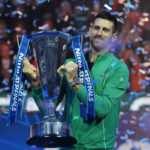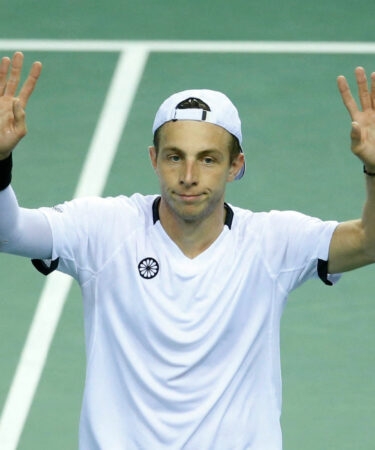Zverev stays mentally tough, benefits from Griekspoor’s nerves in five-set thriller
Alexander Zverev seemed to be down and out when he trailed Tallon Griekspoor by a double-break in the fifth set of their third-round match in Paris on Saturday. But he stayed mentally strong and fought back.
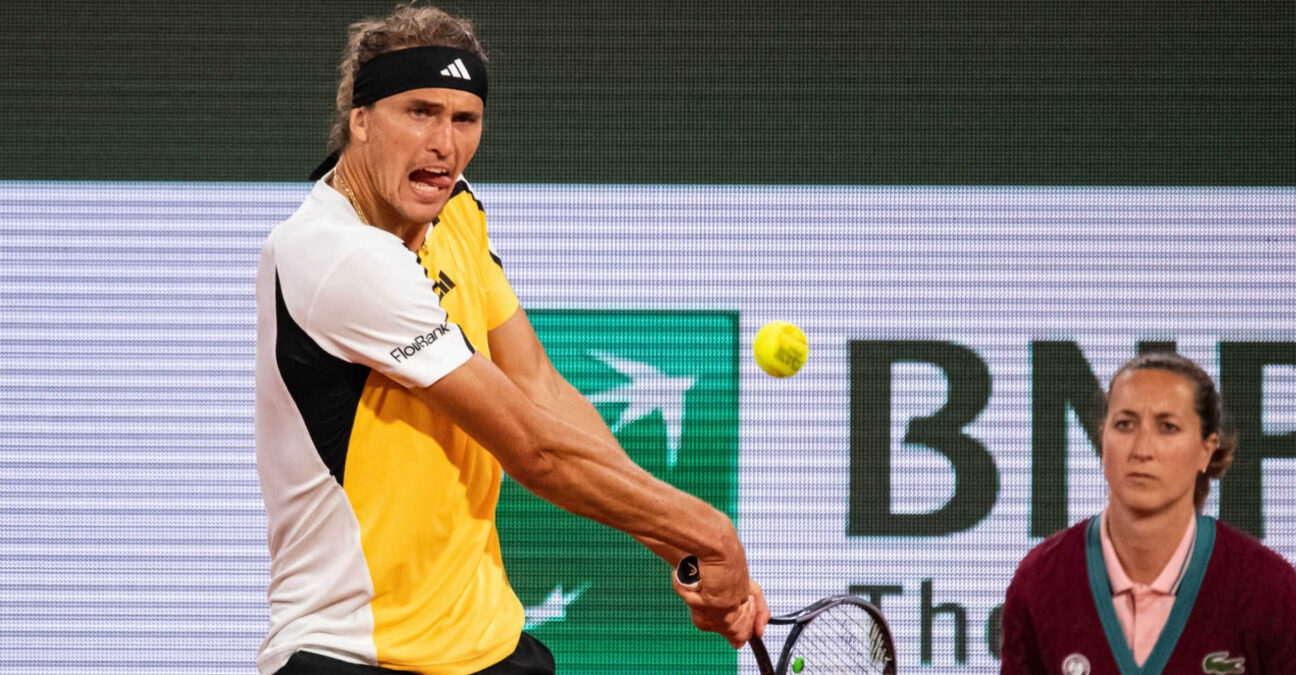 Alexander Zverev, Roland-Garros 2024
Image Credit: Baptiste Autissier / Panoramic
Alexander Zverev, Roland-Garros 2024
Image Credit: Baptiste Autissier / Panoramic
Alexander Zverev probably figured that his current level of tennis would be good enough to beat Tallon Griekspoor in the Roland-Garros third round.
However, the world No 4 did not have his ‘A’ game on Saturday — not the one that carried him to the recent Rome title or the one that helped him defeat Rafael Nadal in the first round on Monday. That coincided with Griekspoor displaying some of the best ball-striking of his career.
As such, Zverev was forced to use his mind — not just his racket — to avoid what would have been a crushing loss on Court Philippe-Chatrier.
And that’s exactly what the German did. He battled back from a 4-1, double-break deficit in the fifth set to outlast Griekspoor 3-6, 6-4, 6-2, 4-6, 7-6 (3). Zverev survived after four hours and 14 minutes, saving his best stuff for the fifth-set super-tiebreak.
My first mindset was, ‘okay, right, I’m down 4-1, but how do I give myself the best chance to come back?’
Alexander Zverev
Given the clutch performance, it was no surprise that the 27-year-old credited his mental strength.
“I think it comes maybe with age,” he said when asked about staying calm when things aren’t going well. “It comes with maturity. Also, I told myself I want to become a different type of player and different type of role model as well in a way. I don’t break racquets anymore. I barely get warnings.
“But it’s something that I kind of had this conversation with myself, and I realized that I don’t do any good to myself and especially to people and kids watching. I’m glad it’s working out. I worked on myself quite a lot in that department because, obviously, tennis is a very mental game. I’m happy that the improvements have kind of shown on the court.”
Keeping a level head and thinking critically also helped Zverev recover from the brink of defeat. He made a conscious effort to change tactics when he trailed 4-1 in the decider.
“The first thing I did (was) I changed my return position from very far back,” the fourth seed explained. “I stepped in closer to the line because he was killing me with the serve-and-volley for a set and a half, for fourth set and fifth set.
“My first mindset was, ‘okay, right, I’m down 4-1, but how do I give myself the best chance to come back?’ The number one thing I had to take away was his serve-and-volley game, which was working out very well today for him. So I did that. I thought I was returning incredibly well down 4-1. I played a very good game at 4-1 down.”
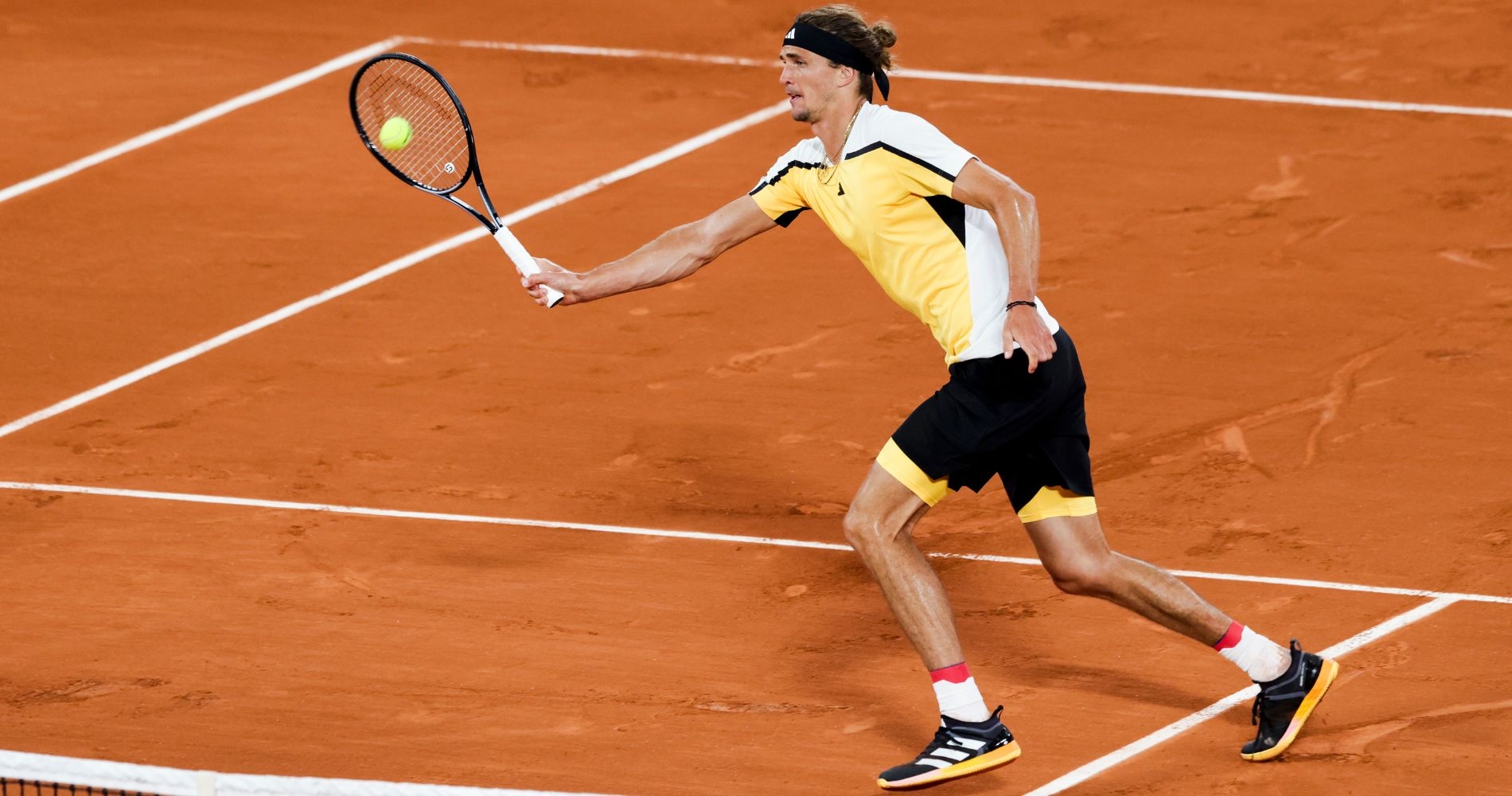
As pressure mounts, Griekspoor crumbles
With the pressure on, Zverev rose to the occasion. Griekspoor, on the other hand, melted down. The Dutchman gave back the first of two breaks at 4-1 and then two double-faults at 4-3 threw away the second break.
“He started to think,” Zverev noted. “He started to think at 4-3, and he did do the two double-faults. He did maybe miss one or two backhands that he shouldn’t have missed.”
Griekspoor agreed.
“Of course (there were) a little bit of nerves there,” he admitted. “I felt like my serve let me down a lot at 4-1 and 4-3 — not a lot of first serves…. Being so close definitely hurts. But, yeah, hats off to him. Great fighting spirit; great level in the end. That shows also why he is ranked so high in the world.”
And that’s why Zverev is moving on to face Holger Rune in the last 16, still alive for a first Grand Slam title.
“When you are down 4-1, double-break against him, there’s a very small chance you’re going to come back,” he concluded. “So, obviously (I’m) very happy that I did.”

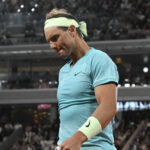

People in this post
More tennis news
How the old Zverev weighed down the new Zverev in the Masters semi-finals

Norway, Christian Ruud, Grand Slam runner-up: Everything you always wanted to know about Casper Ruud (but never had time to find out) – updated after 2024 ATP Finals exit

Italy, Carota Boys, Australian Open, drugs case: Everything you always wanted to know about Jannik Sinner (but never had the time to find out) – updated after reaching 2024 ATP Finals final

“It comes to a point where you wonder if tennis can be played any better” – Ruud on Sinner’s stratospheric performance

Players, prize money, dates, tickets: Everything you always wanted to know about the 2024 ATP Finals (but never had time to find out) – updated after Day 7
